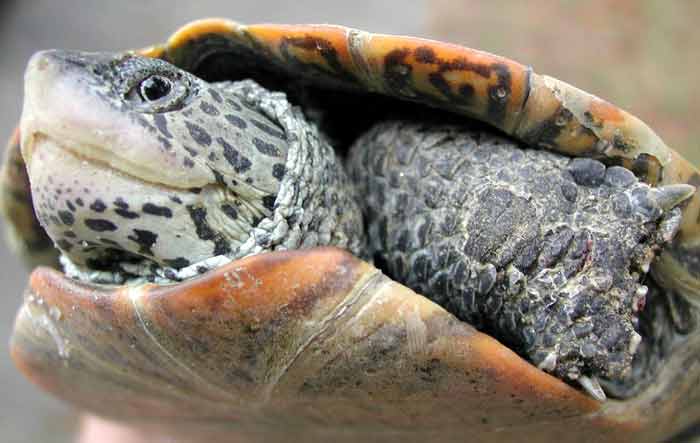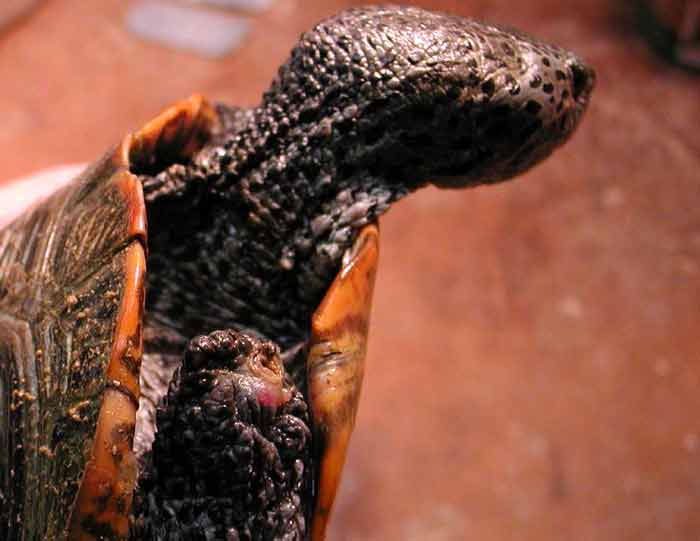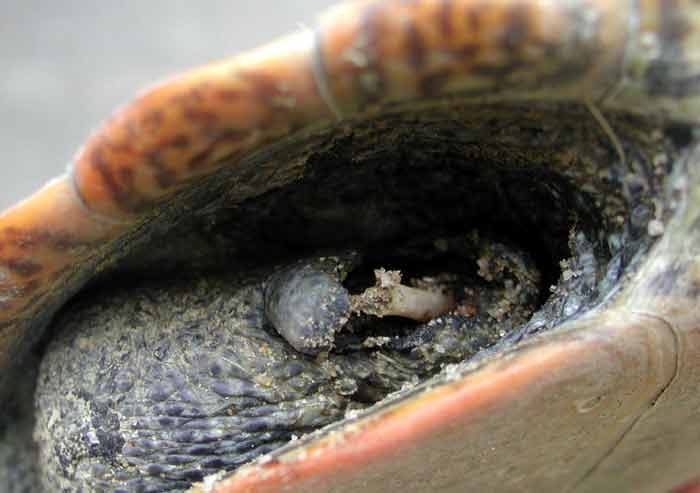Sometimes Just Being There Makes You a Hero
— 14 October 2003
A bright October morning morphed with New England brusqueness into stormy overcast. Damp east winds blew off the ocean and chilled bone and heart alike. I had kayaked the mid-tide rising in Chipman’s Cove to assess whether any terrapins remained active. Two hours of paddling and I spotted one large female and one male snorkeling off the west shoreline where they had been driven by white capped waves.
Back on Lieutenant Island this afternoon to remove my second kayak from its summer perch, I strolled along the wrack line. To my surprise, a female terrapin had dragged herself about a foot onto the beach and stared up at me as though to say, “Please help me!” When I lifted her it became apparent she was in desperate trouble, because she seemed almost hollow. A mature, 11-year-old female, she measured precisely 17.64 centimeters in length — the exact average for all 11-year-old females ever captured in a quarter century of research on the Outer Cape. But instead of the 944 grams that an 11-year-old is expected to weigh, this turtle registered a mere 644 grams. She was dehydrated and she had no fat at all even as she prepared to enter winter brumation.

A cursory examination hinted at a troubling tale. Her left front limb was shredded and reddened (see above).

Her right front limb was mostly gone below the joint in what appeared to be a fairly recent incident.

And worst of all, her right rear limb was severely injured with bone still exposed. Because she measured normal size for her age, I surmise that these injuries are of very recent origin, or else it would have been reflected in her growth curve. Tomorrow, Terrapin 1999 will be transported to the U.S. Humane Society’s Cape Wildlife Center in West Barnstable after a nighttime of warmth and rehydration. Assuming her wounds can be patched and any infection controlled, she will need to stay warm and awake and fed this winter because she has insufficient fat reserves to see her through a brumation cycle. I have the tank heating up to accommodate her long term rehabilitation.
So, #1999 is a very fortunate turtle. She struggled ashore on the one segment of non-nesting beach on Lieutenant Island where the Turtleman still patrols every day to exercise his dogs. And for this lucky lass, it may make the literal difference of life and death.
|